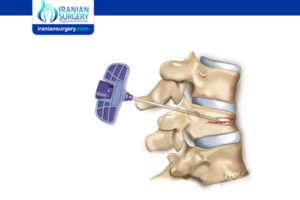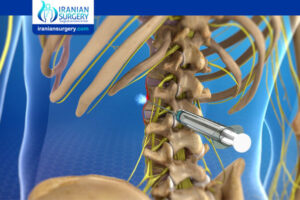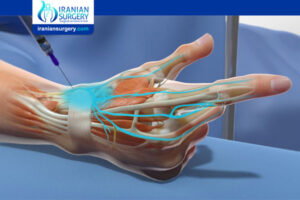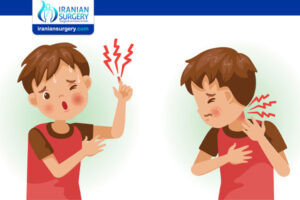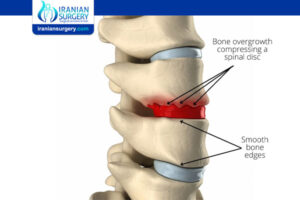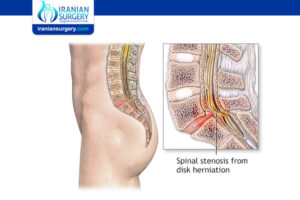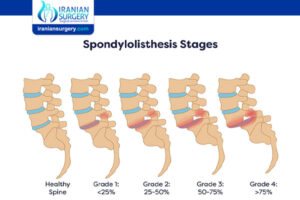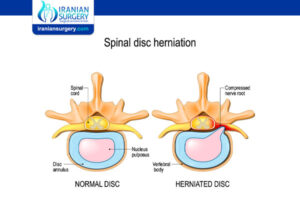Yes, Iran is the leading country in the region for offering quality fertility treatment services with a good success rate. Iran has done a large number of research in this field, especially IVF or in-vitro fertilization. As the only muslim country in the world offering fertility treatment, muslim couples can also travel for treatment with ease of mind.
Iranian Surgery has the longest history in providing fertility treatment services to international clients with many successful and satisfied cases. From the initial free consultation online, to fixing your treatment plan with expert doctors, preparing your travel itinerary, booking hotel, airport transfer, providing a medical interpreter and so many other services, the Iranian Surgery team will be there to support you throughout all the phases of your journey.
All around the world, the success rate for IVF is below 50% in every embryo transfer. We at the Iranian Surgery fertility treatment center have been successful in raising that rate to 50% with the help of expert doctors, good medication, and up-to-date equipment.
The main poles for treating infertility in Iran are Tehran and Shiraz, therefore the best centers are located in these two cities. Thousands of people are undergoing treatment in these centers on a daily basis and most of them are eventually successful in realizing their dream.
The infertility treatment field has many branches with different costs, timelines, and etc,. Your case needs to be reviewed by a specialist first, then a suitable treatment plan is suggested as a package specifically for your case is assembled with an estimated cost.
One thing is for sure, undergoing infertility treatment in Iran is definitely much more cost effective than the other leading countries in the world such as America or Europe.
The Iranian Surgery team can help you with visa application. By getting a medical visa, patients can travel to Iran alone or with someone else to accompany them during their treatment. In any case, the Iranian Surgery support team will be there to support international patients throughout the entire course of their treatment.
There are different options available for accommodation. Depending on your situation and your own preference, you could stay in a hotel with good qualities or in an apartment hotel.
Since your stay in Iran for fertility treatment could be a bit long, we recommend you choose the apartment hotel. This way you will have more space and a kitchen is available for cooking meals if you’re interested.
You can send us your medical documents if they are either in English or Arabic, Iranian Surgery will translate them to Farsi for you if needed.
Test reports are usually in the abbreviated language of medical tests and specialists from all countries are able to understand them.
However, if for example, the description of your sonography is in languages other than English or Arabic, it would be better that you translate it into one of these two languages and then send your reports to us.
Yes, many of our doctors are fluent in English and sometimes Arabic. But in any case, the Iranian Surgery team will be accompanying you throughout your treatment.
Infertility Treatment in Iran
To get pregnant, all steps during ovulation and fertilization must be done correctly. Sometimes the issues that cause infertility in couples are present at birth and sometimes they develop in the later stages of life.
Causes of infertility can affect one or both partners. In general:
. In about one-third of cases, there is an issue with the man
. In about one-third of cases, there is an issue with the woman
. In the remaining cases, there are issues with both the man and the woman, or no cause can be found.
These may include:
. Abnormal sperm production or function due to genetic defects, undescended testicles, health problems such as diabetes, or infections such as gonorrhea, chlamydia, mumps, or HIV.
. Sperm delivery problems due to sexual problems, such as premature ejaculation; certain genetic diseases, such as cystic fibrosis; structural problems, such as a blockage in the testicles; or injury or damage to the reproductive organs.
. Overexposure to certain environmental factors, such as pesticides, other chemicals, and radiation. Smoking, marijuana, alcohol, high blood pressure, anabolic steroids, and medications to treat bacterial infections, and depression can also affect fertility. Frequent exposure to heat, such as in a sauna or hot tub, can raise body temperature and may affect sperm production.
. Damage related to cancer and its treatment, including radiation or chemotherapy. Cancer treatment can disrupt sperm production, sometimes severely.
Causes of female infertility may include the following:
. Ovulation disorders, which affect the release of eggs from the ovaries. These include hormonal disorders such as polycystic ovary syndrome. Hyperprolactinemia, a condition in which you have too much prolactin — the hormone that stimulates breast milk production — also may interfere with ovulation. Either too much thyroid hormone (hyperthyroidism) or too little (hypothyroidism) can affect the menstrual cycle or cause infertility. Other underlying causes may include excessive exercise, eating disorders, or tumors.
. Abnormalities of the uterus or cervix, including abnormalities of the cervix, polyps in the uterus, or the shape of the uterus. Noncancerous (benign) tumors in the uterine wall (uterine fibroids) may cause infertility by blocking the fallopian tubes or preventing a fertilized egg from implanting in the uterus.
. Fallopian tube damage or blockage, often caused by inflammation of the fallopian tube (salpingitis). This can result from pelvic inflammatory disease, usually caused by a sexually transmitted infection, endometriosis, or adhesions.
. Endometriosis, which occurs when endometrial tissue grows outside the uterus, may affect the function of the uterus, ovaries, and fallopian tubes.
. Primary ovarian insufficiency (early menopause), when the ovaries stop working and menstruation stops before the age of 40. Although the cause is often unknown, certain factors are associated with early menopause, including immune system diseases, certain genetic conditions such as Turner syndrome or carriers of Fragile X syndrome, and radiation or chemotherapy treatment.
. Pelvic adhesions, bands of scar tissue connecting the organs that may develop after a pelvic infection, endometriosis, appendicitis, or abdominal or pelvic surgery.
. Cancer and its treatment. Certain cancers—especially reproductive cancers—often impair a woman’s fertility. Both radiation therapy and chemotherapy may affect fertility.
Many of the risk factors for both male and female infertility are the same. They include:
. Age. Female fertility declines gradually with age, especially in the mid-30s, and drops rapidly after the age of 37. Infertility in older women is most likely due to low egg count and quality, and can also be due to health problems that affect fertility. Men over 40 may be less fertile than younger men.
. Tobacco use. Smoking tobacco or marijuana by either partner may reduce the chance of pregnancy. Smoking also reduces the potential effectiveness of fertility treatment. Miscarriages are more common in women who smoke. Smoking can increase the risk of erectile dysfunction and low sperm count in men.
. Alcohol consumption. For women, there is no safe level of alcohol consumption during or after pregnancy. Alcohol consumption may contribute to infertility. For men, heavy alcohol consumption can reduce sperm count and motility.
. Being overweight. Among women, an inactive lifestyle and being overweight may increase the risk of infertility. For men, sperm count may also be affected by being overweight.
. Being underweight. Women at risk of fertility problems include those with eating disorders, such as anorexia or bulimia, and those who follow a very low-calorie or restricted diet.
. Exercise issues. Lack of exercise leads to obesity, which increases the risk of infertility. Less commonly, ovulation problems may be associated with frequent vigorous exercise in women who are not overweight.
Infertility treatment mainly depends on the cause of infertility and your goals. Your age, how long you’ve been trying to get pregnant, and your personal preferences are the determining factors in deciding your treatment. Sometimes, one person needs treatment, but in some cases, treatment involves both partners.
In most cases, infertile couples have a high chance of conceiving. Things like medication, surgery or assisted reproductive technology (ART) can help. Often, changing your lifestyle or improving the frequency and timing of intercourse can improve your chances of getting pregnant. Treatment can also include a combination of methods.
Infertility treatments in women include:
. Lifestyle changes: Gaining or losing weight, quitting smoking or using drugs, and improving other health conditions can increase your chances of getting pregnant.
. Medications: Fertility drugs stimulate your ovaries to ovulate more eggs, which increases your chance of getting pregnant.
. Surgery: Surgery can open blocked fallopian tubes and remove fibroids, polyps, or scar tissue.
Doctors may make suggestions about how you can improve your chances of getting pregnant. These may include the following:
. Tracking ovulation through basal body temperature, using a fertility tracking app, and paying attention to cervical mucus.
. Using a home ovulation kit, a kit you can buy at the drugstore or online to help predict ovulation.
Infertility treatments in men include:
. Medications: Medications can increase testosterone or other hormone levels. There are also medications for erectile dysfunction that help you maintain an erection during sex.
. Surgery: Some men need surgery to open blockages in the tubes that carry sperm or to repair structural problems. Varicocele surgery can make sperm healthier and improve chances of fertility.
Some couples need more help to get pregnant using assisted reproductive technology (ART). ART is any fertility treatment that involves handling the sperm or egg by a doctor. To increase your chances of getting pregnant, you can use medications to stimulate ovulation before trying one of the following options:
. In vitro fertilization (IVF): IVF involves retrieving eggs from your ovaries and placing them with sperm in a laboratory dish. The sperm fertilizes the eggs. The doctor transfers one to three of the fertilized eggs (embryos) into your uterus.
. Intracytoplasmic sperm injection (ICSI): This procedure may be performed during the IVF process. An embryologist injects a single sperm directly into each egg. Then, the doctor transfers one to three embryos into your uterus.
. Intrauterine insemination (IUI): Your doctor uses a long, thin tube to place the sperm directly into your uterus. IUI is sometimes called artificial insemination.
. Assisted hatching: A process that involves opening the outer layer of the embryo to make it easier for it to implant in your uterine lining.
. Third-party ART: Couples may use donor sperm, donor eggs, or donor embryos. Some couples need a gestational carrier or surrogate.
Approximately 9 out of 10 couples conceive after fertility treatments. Success rates vary depending on the type of treatment used, the cause of your infertility, how long you have experienced infertility, the age of the couple, and other factors.
The first and most important step in the infertility treatment process is choosing the right fertility center. The expertise of doctors and medical staff, the quality of services provided, the reputation and success rate of the clinic, up-to-date equipment, and patient reviews, are among the most important factors in choosing an infertility treatment clinic. Choosing the right infertility treatment center can have a great impact on the success of the treatment.
